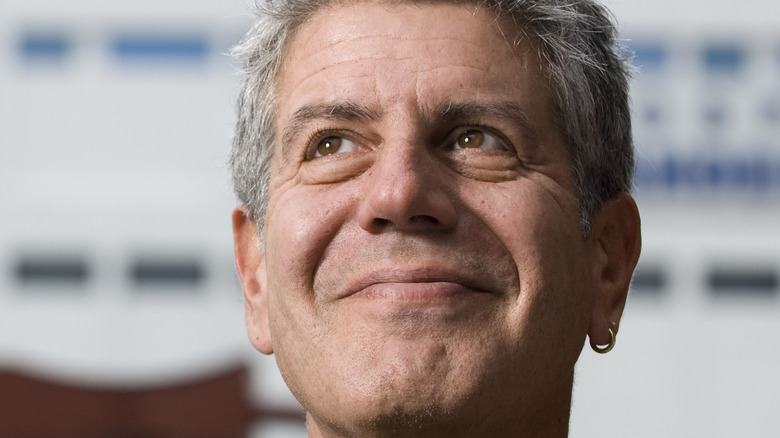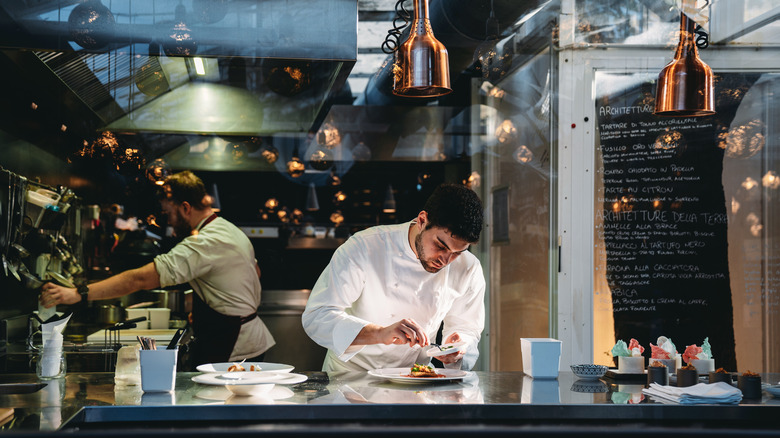Why Anthony Bourdain Said Tuesday Is The Best Day To Eat Out
If you live in New York City, then you know how flooded with tourists, visitors, and day-walkers weekends are. It's when your favorite barstool at the local watering hole is sure to have a butt on it that isn't yours. Want to sit down on the subway? You're out of luck, pal. Don't even get us started on navigating a standing-room-only concert on a Saturday night. However, it isn't just NYC — it's like this to varying degrees near every major metropolis. Traffic gets heavier, beaches fill with sunbathers, and coffee shop lines grow longer on weekends.
That's why Anthony Bourdain said that the best night to eat out is Tuesday. Not only will the crowds be thin, but Tuesdays are when many restaurants receive their weekly deliveries. In his groundbreaking New Yorker essay "Don't Eat Before Reading This," Bourdain reveals, "Generally speaking, the good stuff comes in on Tuesday: the seafood is fresh, the supply of prepared food is new, and the chef, presumably, is relaxed after his day off. (Most chefs don't work Monday.)"
Beyond that, the kitchen staff will be less stressed and have better attention to detail without a packed-to-the-gills dining room to feed, meaning you get a better meal and shorter wait times. Still, logistical reasons like these aren't the only reasons to opt for a Tuesday dinner out, either, says Bourdain.
Learn the unspoken industry lingo
When you stroll into a crowded restaurant on a Friday night during peak dinnertime, you have immediately outed yourself as someone unacquainted with and indifferent to "the industry." In short – you don't get it, and you're not the kind of guest the kitchen team looks forward to serving. As he told The New Yorker, "Chefs prefer to cook for weekday customers rather than for weekenders, and they like to start the new week with their most creative dishes." It's a matter of a shared understanding between industry professionals — and why, as VICE aptly put it, "Your brunch server hates you."
The restaurant industry is not a normal one, and few people knew this better than Bourdain. A split 17-hour shift and its accompanying lifestyle accouterments have a way of knitting industry veterans together in a bond that is both embittered and familial. As Bourdain advised a crowd of culinary students for the Indiana Humanities Council, the cooking industry "is a high-pressure, physically demanding, relentless business filled with futility, injustice, substance abuse ... Are you the sort of person who loves and feeds on that kind of life, as I did? Or are you a normal person?"
Indeed, "normal" people are the kind that can be spotted showing up for the weekend dinner rush. So, if coming off as a tourist isn't your style, swing by that new joint you're excited to try on Tuesday — when the food and the staff are at their freshest.

